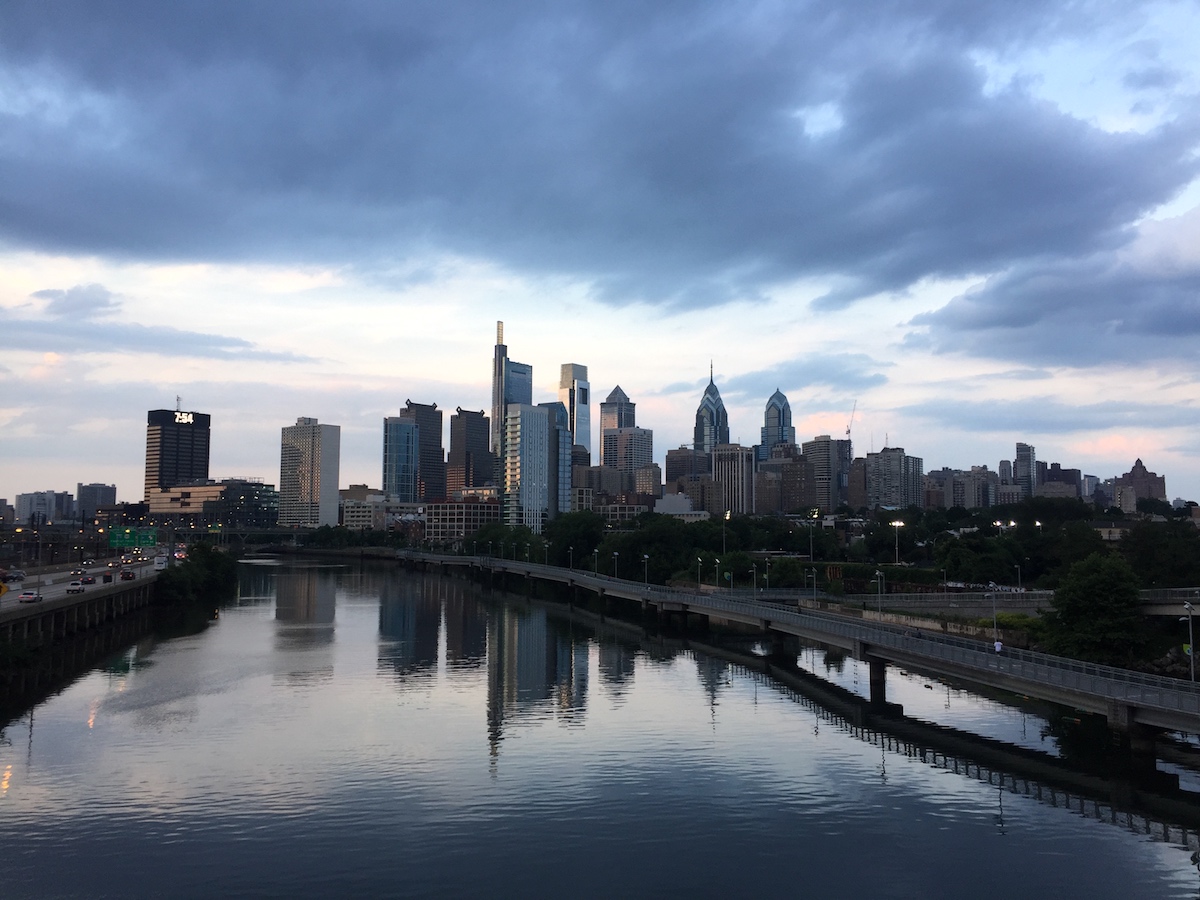In a recent report by the Center City District (CCD) and the Central Philadelphia Development Corporation looking at the business density of East Coast cities, Philadelphia lags behind New York, Atlanta, Boston and Washington, D.C, especially when it comes to Black-owned businesses.
The report, “Getting More Philadelphians Back to Work: Business Density and the Role of Black and Minority Owned Businesses,” found that out of all five East Coast cities, Philadelphia had the least number of total businesses, with about 12.1 business for every 1,000 residents. It also had the lowest number of Black-owned businesses compared to the overall Black population — 1.8 Black-owed businesses per 1,000 Black residents — with nearby D.C. having nearly double the amount of Black-owned businesses, despite its Black population being less than half the size.
There’s a clear disparity between overall number of business per resident and number of Black-owned businesses per Black resident in all these cities. But Philly faces two challenges — lower business density in general, and a lower density of Black-owned firms in particular.
“If Philadelphia had as many Black-owned businesses for every 1,000 Black residents as Washington, D.C., the number of Black-owned businesses would nearly triple, rising from 1,174 to 3,329,” the report states.
Read the reportThe report names a few reasons why this could be, including decentralization, or the idea that many of the Philadelphia region’s viable jobs and businesses lay right outside its city center. The city also has the lowest number of jobs per “working age” Philadelphian, the report says. And it names the high wage tax — almost four times the regional median — as a likely factor of businesses not setting up shop here.
“The pandemic has demonstrated the extreme vulnerability of the City’s budget due to its high dependency on taxes that are avoidable by relocating a business or working from home, beyond the city boundaries,” the report says. “This reinforces the differences in income, wealth and disposable income between the city and suburbs, creating a further limitation for small business formation.”
In Philadelphia, industries like healthcare, retail and professional services have the highest Black-owned business density, but it still lags the nation in every industry sector except educational services and other services.
The organizations have identified multiple strategies that could support existing and potential Black-owned businesses moving forward. The City of Philadelphia’s level of investment in local programs to promote minority business could certainly be higher, the report says, including increasing access to capital, directly purchasing services from Black-owned businesses, developing business networks, and increasing training and technical assistance.
In fiscal year 2021, D.C. will spend $6.60 per capita on programs for small and minority business development, compared to Philadelphia’s $0.59 per capita, the report said. (Not that when looking at state assistance for pandemic-related losses, only 5% of the first small business coronavirus loans went to non-white entrepreneurs in one recent program.)
Increasing access to capital for Black-owned businesses is another recommendation from the organizations in the report, although it’s not a new realization: On average, Black owners of new businesses in the United State raise 1.5% of total financial capital via outside equity, “while outside equity accounts for about 17% of total financial capital for white-owned new businesses, Nick Frontino, the managing director at the Economy League of Greater Philadelphia, told Technical.ly last year.
Regardless, as the region seeks to recover from this pandemic-induced recession, and local leaders seek to expand opportunity and reduce poverty, “Philadelphia must focus more strategically on the factors that create a more conducive environment for the growth of all businesses at the same time as placing a special emphasis on the growth of Black and other minority-owned firms,” the report concludes.
The report calls out a few organizations and offices, like the city’s Office of Economic Opportunity, the Department of Commerce and PIDC as having programs or specific funding for founders of color. Although Philadelphia’s municipal budget will be very constrained over the next few years, limiting the ability to support new initiatives, the bright spot could be additional federal funding, the report says.
“The pandemic has caused a huge spike in unemployment across the nation. To reduce unemployment and poverty as the health crisis ends and recovery begins, Philadelphia will require far more than a return to the status quo before Covid-19,” CCD President and CEO Paul Levy said of the report. “We need a sustained effort to increase the number of Black-owned and minority-owned businesses as well as much greater attention to business growth overall.”







